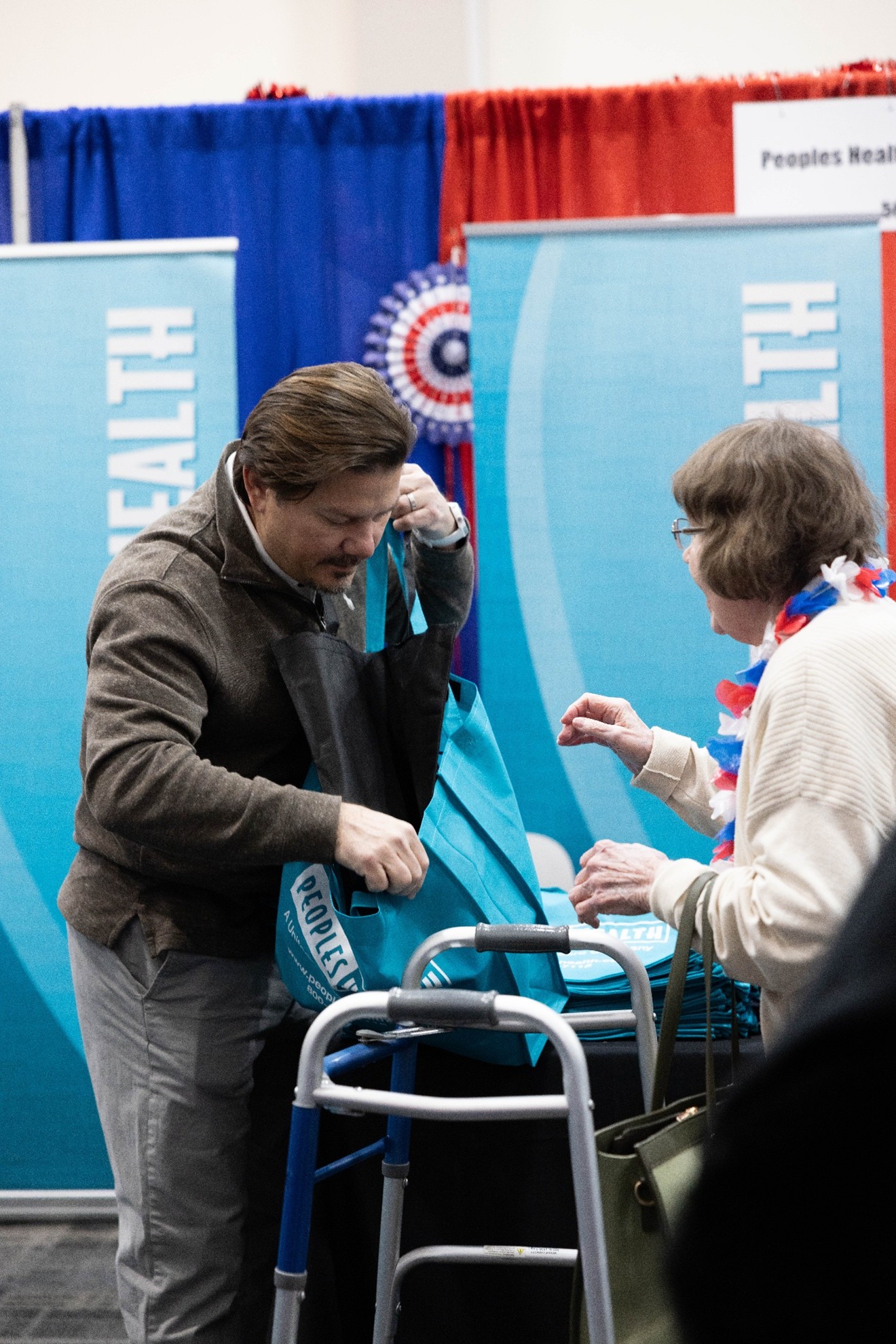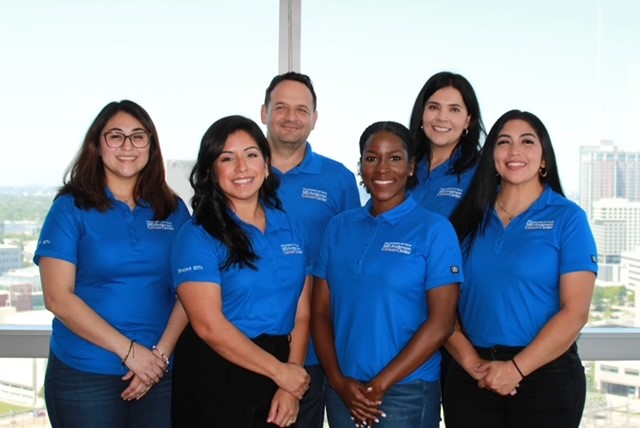Interview with Marshall – 2025 National Achievement Award Honoree
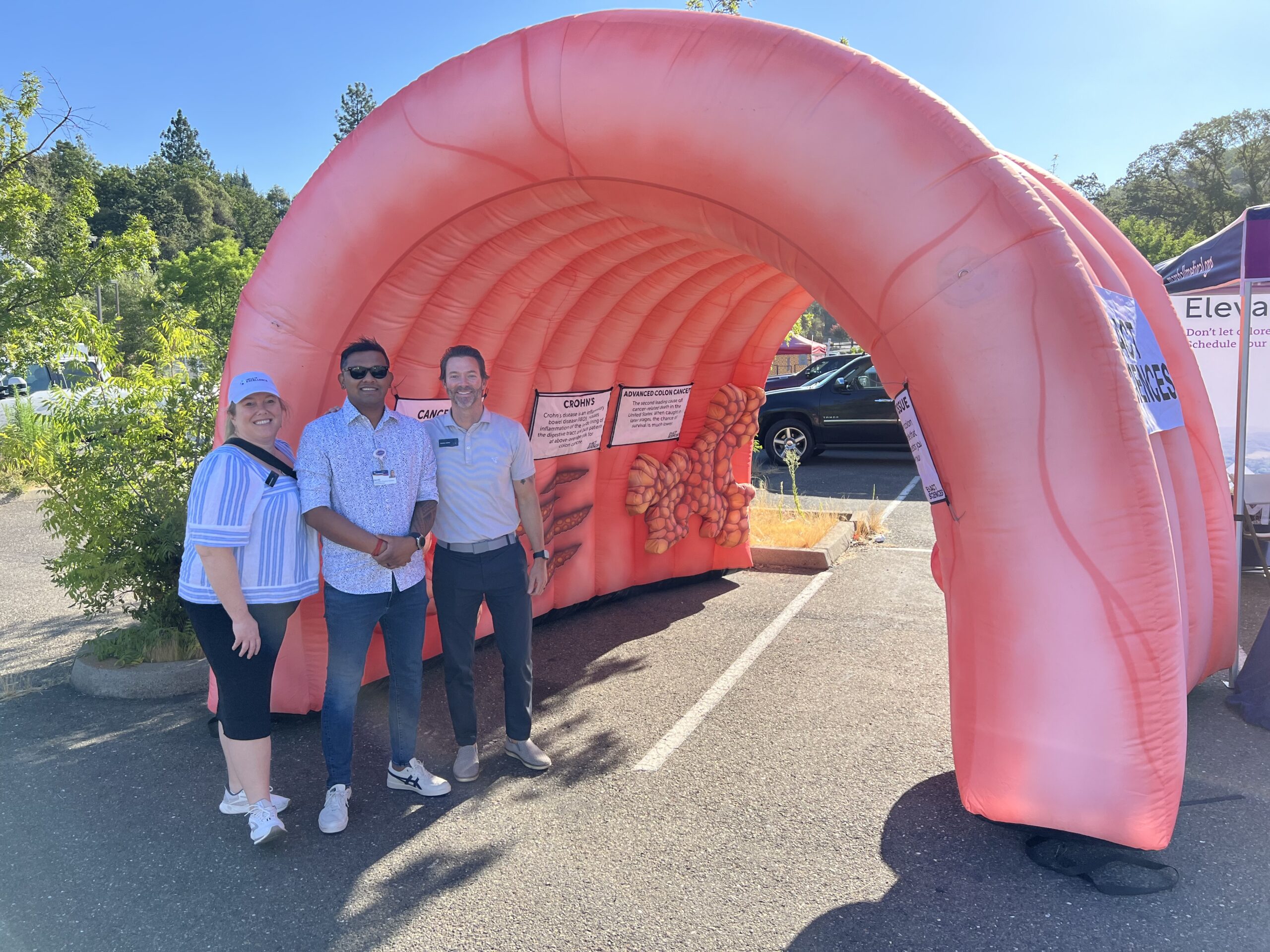
Date: September 30, 2025
As part of a series, the ACS NCCRT is thrilled to highlight our 2025 National Achievement Award Winners with in depth blogs on their work. Below you’ll find the fourth of five interviews with awardees about what they did to increase colorectal cancer screening (CRC) rates as well as their lessons learned from their efforts.
Quick Stats
Organization: Marshall
Interviewees:
- Aleksandr Gerez, MHA, BAS, Manager, Value-Based Care – Population Health
- Rachel Peigh, MBA, RN, Vice President, Operations
- David Kumar, Outpatient Practice Director, Gastroenterology
- Dillon Lee, Clinical Applications & Operations Specialist/Trainer, MMF Administration
The Interview
When and why did Marshall decide to focus on increasing colorectal cancer screening?
Looking at our data, we found that colorectal cancer (CRC) screening rates for our rural and younger populations (ages 45-49) were down 20-30% compared to our general population. We believed Marshall had a strategic opportunity to change those numbers, to make a significant difference in the health and well-being of our patients and neighbors, and to achieve top decile screening rate performance.
In January of 2024, we set out to design a campaign that engaged our local population and our providers, speaking to the independent free spirit of our region. That campaign became “Elevate Independence: Don’t let colorectal cancer slow you down” focusing on active healthy living and longevity.
Did Marshall set a colorectal cancer screening goal? If so, what was it and how did you measure it? What was the final outcome?
Our primary goals from the beginning were to engage our younger and rural populations, to improve CRC awareness and screening rates, and to achieve top decile performance of 80%, with a stretch goal of 85%. To reach those goals we knew that we had to engage the community, in particular vulnerable populations, and educate primary care and specialty providers and staff. That was our focus, and in so doing we built a sustainable model to ensure we will continue to achieve success for our patients.
Marshall used available patient data from EHR systems to access screening needs and track performance. Multiple new dashboards were created to track screening rates for rural and younger (45-49) populations. Additionally, Exact Science provided Marshall with data on patient engagement and return rates for Cologuard, a stool-based test kit.
Over an 18-month period, from January 2024 to July 2025, Marshall was able to increase our overall CRC screening rates by over three percentage points, reaching 83%. Screening for our younger population (ages 45-49), which was a primary focus of our efforts, increased by 10 percentage points, reaching 63%.
In Marshall’s Georgetown clinic, a rural and historically underserved community, we were able to increase screening rates significantly. Rates in that community’s general population increased by seven percentage points, reaching 65%, and in the younger population (ages 45-49) screening rates rose a dramatic 25 percentage points, reaching 44%.
Did Marshall have a colorectal cancer screening champion for your efforts on staff or in the community? If so, who were they and how did you engage them?
Our CRC screening champion is Aleksandr Gerez. From initial research and grant applications, to partnering with our marketing team to develop outreach, training, and educational materials to engage primary care and gastroenterology providers, to hosting and participating in community health fairs and farmers markets, he has been the anchor to bring it all together. In partnership with the primary care and gastroenterology providers, he has worked to educate the community and train staff on the importance of early screening and on different screening modalities, all from a larger population health perspective.
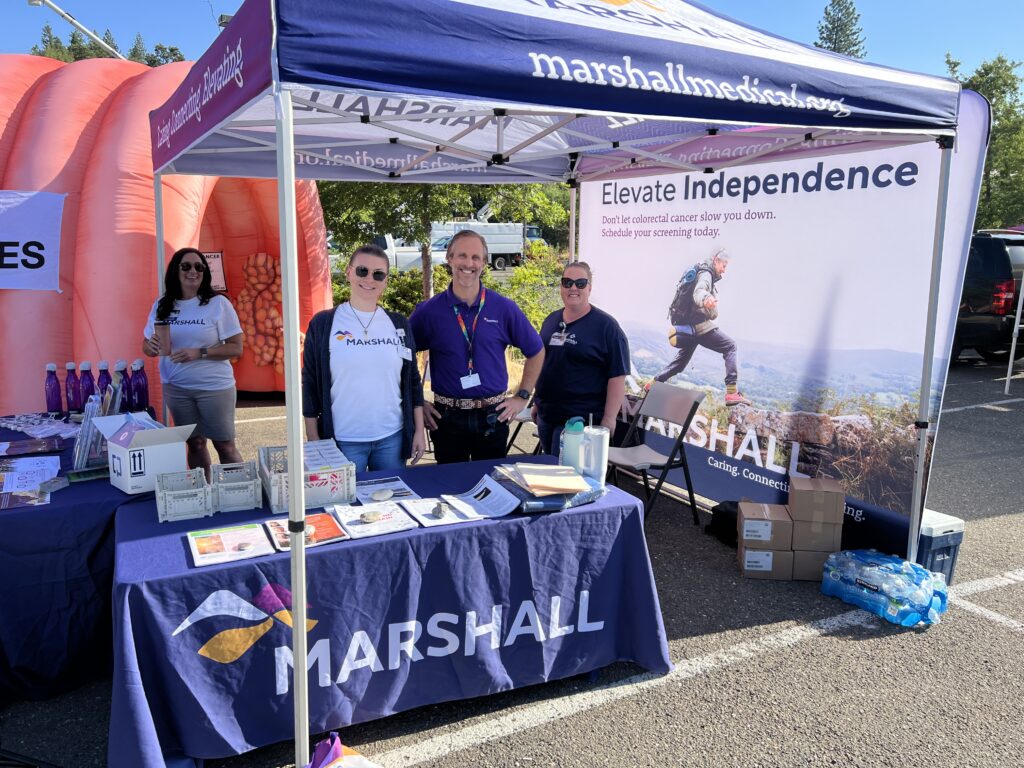
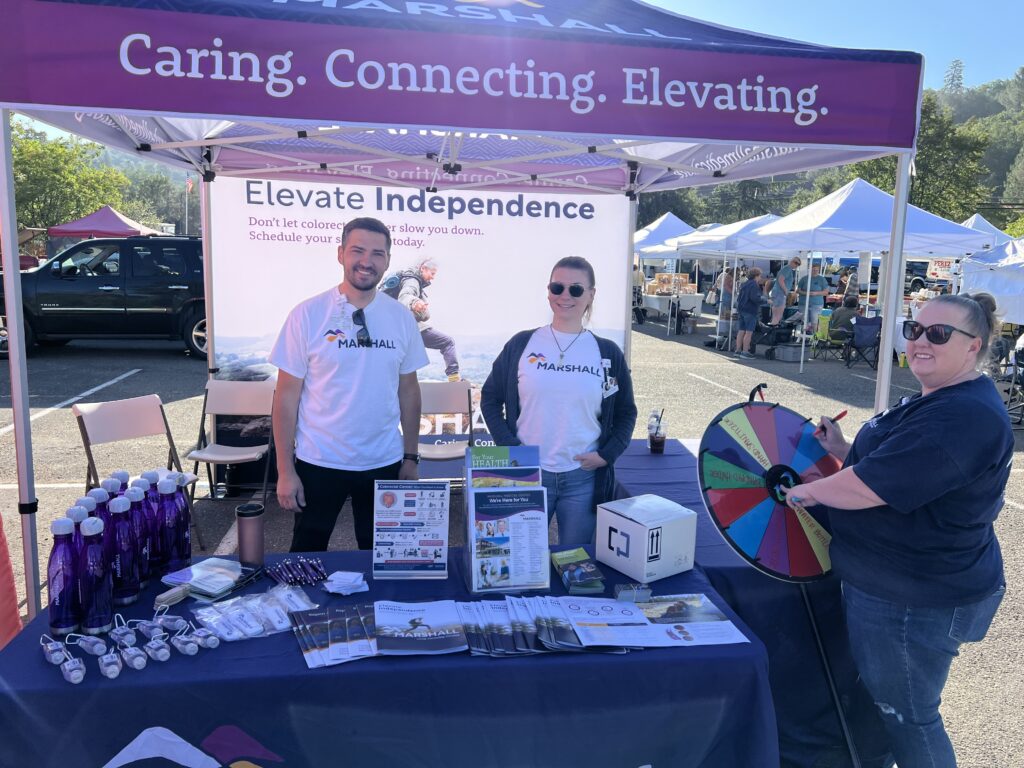
What interventions or activities did Marshall use to increase colorectal cancer screening rates?
Supported by a grant from Exact Sciences, Marshall developed a comprehensive and multifaceted outreach campaign (“Elevate Independence: Don’t let colorectal cancer slow you down”) to reach our patient population and educate them on the importance of CRC screening. Internally, we recruited clinician champions, developed and conducted evidence-based education for providers and their staff, created standing orders for stool-based tests, and worked to minimize financial barriers to screening and care by offering transportation and cost-reduction programs. We further enhanced our clinical outreach by systematizing follow-ups after screening orders and conducting targeted efforts for vulnerable patients who may need additional support and encouragement. Additionally, our team provided telephone follow-up for individuals who did not mail back their test kits, as well as bulk ordering and communication to all eligible patients on a monthly basis.
Externally, we developed a multi-lingual small media campaign, enhanced our communication to vulnerable patients, and conducted collaborative community outreach events to educate and empower residents on the importance of CRC screening and available methods. Special emphasis was placed on targeted regions to engage underserved, and under screened, populations. Partnerships with El Dorado Community Health Center, El Dorado County Public Health, Library Hubs, and local vendors and events increased our reach.
Working with the Marshall marketing team, we produced a professional video featuring personal stories highlighting the importance of screening, helping to facilitate ongoing electronic outreach.
What do you consider Marshall’s greatest success while working to increase colorectal cancer screening rates?
Our greatest successes were the 10 percentage point overall increase in screening in our younger patients (ages 45-49), the seven percentage points increase in our rural population, and the 25 percentage point increase within the younger rural population. These results are a direct reflection of our campaign and not only improved screening access and awareness but also saved lives by enabling early detection of CRC. Anecdotally, we heard multiple stories of patients newly diagnosed with colon cancer in direct response to the screening efforts. We are tremendously proud of this improvement in the health and well-being of our population. Additionally, we are very proud of the emphasis on improving outreach and education, as well as the partnerships developed in the Spanish-speaking communities.
These achievements reflect Marshall’s commitment to addressing health disparities through tailored outreach, education, and partnerships and the sustainable model we built means these efforts will continue.
What was Marshall’s biggest lesson learned while working to increase colorectal cancer screening rates?
The biggest lesson is how critical it is to have conversations around the importance of CRC screening, and early screening, at all levels of health care from primary care to specialty care and ancillary departments. It can take multiple conversations to truly engage some populations and the more forums we can create to increase awareness, the better success we will have.
Another lesson, however, is the importance of having access to complete data so that we can ensure we are reaching out to our patients in their preferred method (telephone, email, mail, etc.) to help us “reach them where they’re at.”
What else would you want others to know about how Marshall increased colorectal cancer screening rates?
Involving primary care providers and their staff is critical. The population health team can create the materials and drive the campaign, but it is the providers and their staff that can reinforce the message at every visit and interaction.
Ensuring the clinic staff undergo ongoing training empowers them to advocate for CRC screening during patient interactions and ensures the program’s long-term sustainability.
Finally, it is essential to ensure that the patient is in the driver’s seat and understands the options they have in screening modalities. We placed significant emphasis on letting patients know that we will walk with them through every step of the process and, in case of positive results, we will connect them to appropriate care for treatment and follow-up.

The ACS NCCRT would like to thank the Marshall team for their time to complete this interview. Their work to increase CRC screening rates earned them Honoree status for the 2025 ACS NCCRT National Achievement Awards. Learn more about Marshall by visiting their website.
